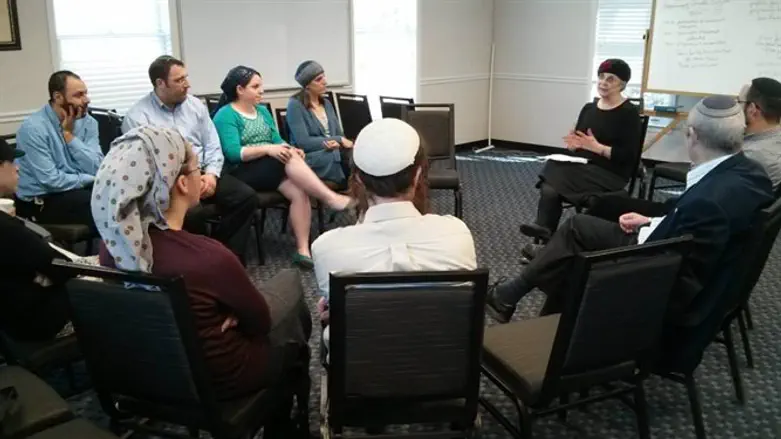
This week's Dvar Torah is by Or-Eitan Ainie, former Shaliach in Montreal (2019-2020), currently a bio technology student at BIU and an Avrech at Kollel Rechovot
The parasha read this past Shabbat is one of the most interesting parashot in the Torah. The parasha starts and finishes in the middle of a story, it doesn't open the story of Joseph and his brothers and it doesn’t finish it. Most of the parashot in the Torah are a closed subject, and if not, they open a subject or close it. For this reason, parashat Miketz is so special.
The parasha starts with Joseph in jail after his brothers sold him in the last parasha. At night, Pharaoh has a dream and with Joseph's belief and wisdom, he becomes the second to Pharaoh only, the ruler of the whole of Egypt. The parasha continues with Joseph's brothers coming to Egypt wanting to buy food. Joseph recognizes his brothers while they don’t recognize him and accuses them of being spies.
The brothers explain that they are all brothers and they have an old father and a young brother in the land of Canaan. After hearing of that, Joseph warns them to return to Egypt only if they have their younger brother. After a long negotiation, Jacob agrees to let Binyamin go, but only if Judah will vouch for his safe return. The brothers return to Egypt, and after Joseph treats them well, he lets them return home, but not before planning their downfall. When the brothers leave to return home for the second time, Joseph accuses them of stealing his goblet, which he put in Binyamin's bag, and takes Binyamin as a slave.
In the next parasha we get to the climax of the story, with Joseph telling his brothers who he really is. In this parasha, on the other hand, the story stops in the middle of the drama; Binyamin, who Jacob cared so much for, was taken into slavery.
In my opinion it is not by chance that the parasha ends at this dramatic point. Before we understand the reason, I would like to note the timing of our parasha.
Every year, parashat Miketz is read around Hanukkah, whether it's during Hanukkah or whether it's a week later. Hanukkah too is a symbol of a midpoint. Hanukkah is the first holiday which isn’t part of the bible (Purim which occurs before Hanukkah is one of the last stories in the bible). Hanukkah is deep in the time of the Second Temple, a period of time in which there are no more prophecies, and for that reason this holiday is distinct from the rest of the holidays.
On the other hand, this holiday surrounds the Temple, and from that aspect it is very similar to the rest of the holidays written in the Torah. Other holidays which the Talmudic Sages gave us have nothing to do with the Temple, because they were decided upon only after the Temple was destroyed. In Hanukkah the Temple was the whole basis of the rebellion and the miracle of the candle lighting happened in the Temple.
Additionally, Hanukkah is the only holiday surrounding the temple that occurs in the winter. The three pilgrimage festivals and the high holidays occur between spring and autumn. Why is Hanukkah different?
As we saw, Hanukkah is the holiday of 'the middle of the road'. It's not entirely like the rest of the holidays from the Torah and it's not entirely like the holidays from our Sages. Hanukkah happens in the dark while the rest of the holidays occur in the light, Hanukkah is the only holiday whose commands all occur at night, after dusk. Hanukkah is the holiday of exile while still being in Israel.
In other words, Hanukkah is the holiday of the journey; Am Yisrael was walking the path towards the inevitable exile, but they were still in Israel (de facto, the exile had begun as we no longer enjoyed national independence).
Hanukkah is one of the holidays fixed by our Sages, but it surrounds the Temple.
Hanukkah is the only holiday which occurs at winter, while it's dark, rainy and cold.
But Israel, despite all that, lights the candles, pushes away the darkness. Hanukkah symbolizes seeing the light and the good even while being on the path, even when forgetting the beginning and not yet seeing the end, that even in the middle we must light the inner light in our souls.
In this way, parashat Miketz, read seveal days ago, symbolizes this same point, even in a huge crisis, with Joseph's brothers being in their lowest point. They don’t remember where they started and they don’t see the light of the end in which Joseph tells them who he is. Even in this hard place, which is so hard psychologically, they must remember that there still is a light.
I hope we deserve seeing the light in the darkness, in the middle of the way, without the hope of the beginning or the hope of the end. Even during a pandemic.
In the despair that crawls into our hearts sometimes, even there, there is a light.
comments: [email protected]
Torah MiTzion stands in the forefront of the battle for the future of the Jewish people in the Diaspora. It offers religious-Zionist Torah scholarship to Jewish communities throughout the world and strengthens the bond between the Jewish people in the Diaspora and in Israel via the study of Torah.